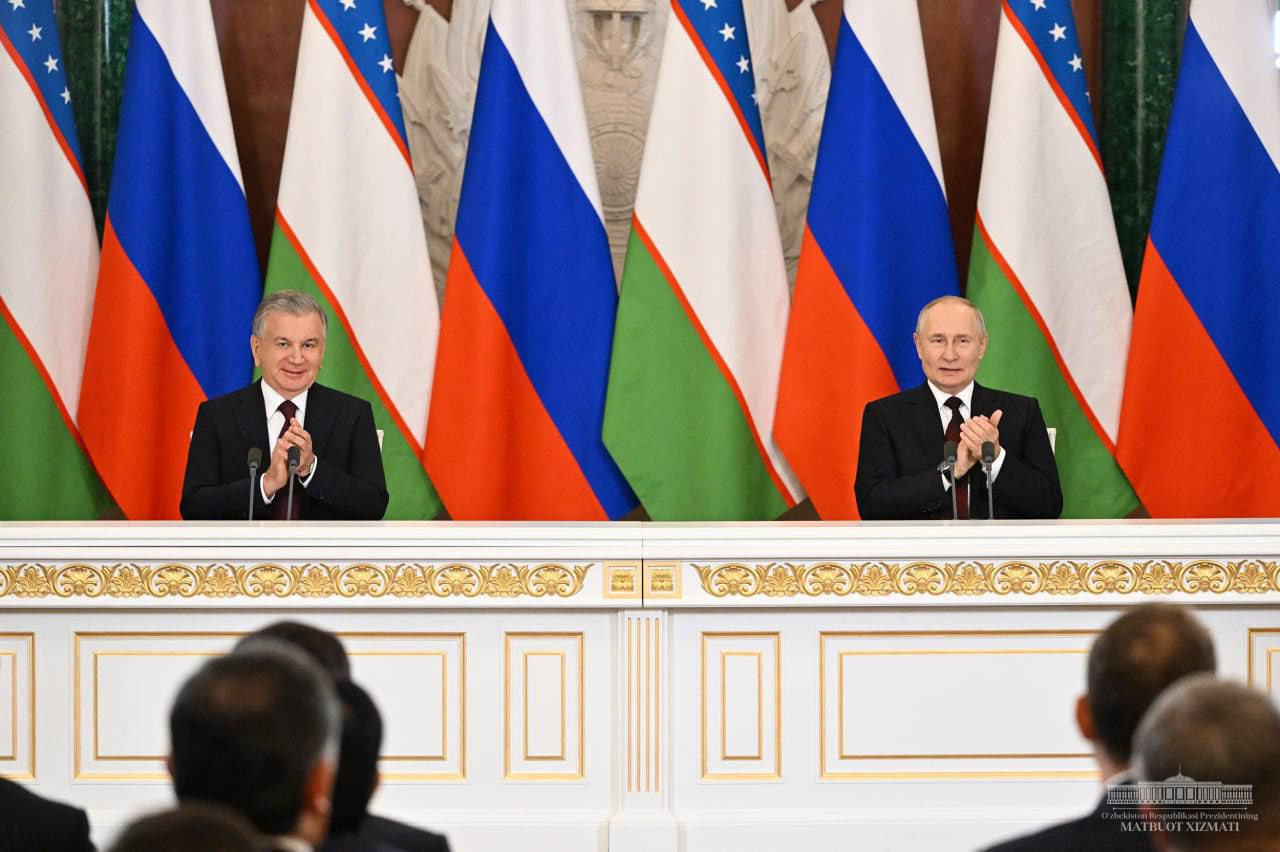The dispute over Central Asia's largest country
During his visit to Tashkent Putin called Uzbekistan ‘the largest country in Central Asia’, despite Kazakhstan being six times larger. And in Astana there are those who cry provocation. In the background is the ‘cooling’ of relations with Moscow in a strategic area for trade routes between China and Europe.
Astana (AsiaNews) - Vladimir Putin's statement during the final press conference of his visit to Tashkent a few days ago, when he called Uzbekistan ‘the largest country in the Central Asian region’, caused much discussion.
Since Kazakhstan exceeds the territorial size of the Uzbeks by at least six times, one wondered whether the Russian president's intention was to deliver a blow to Astana by relegating the Kazakhs to a lesser role due to their less explicit support for Russia's policies.
In fact, Putin's statement came in response to a question about the effects of US sanctions, which pressure former Soviet states in the region to withdraw from cooperation projects with Moscow.
The statement emphasised that ‘Uzbekistan is not only the largest country in Central Asia, but is the second largest in population after Russia, with its 37 million’, evidently referring to all the countries that separated after the end of the USSR, without mentioning Ukraine, whose population is now burdened by the territorial conflict with the occupied areas, and which is not considered by the Russians as an independent country, but only as a part of Russia.
The strength of the Uzbeks lies in distinguishing themselves from the ‘weak and insecure states, especially those where dozens of NGOs with foreign vultures are active’, which are evidently not dispersed by the indispensable laws against ‘foreign agents’.
Instead, Uzbekistan provides a good example of ‘an authority that feels able to realise the interests of its people and its state, without being disoriented by the squawks from overseas’, Putin insisted.
According to Kazakhstan's expert on international politics Anuar Bakhitkhanov, reported by Orda.kz, ‘the allusion to the territories of our countries, in the context of the opposition to the West, cannot be considered coincidental’.
He recalls that Putin has already stated on other occasions that ‘Kazakhstan has no real statehood of its own’, and Tashkent's words constitute ‘a boulder thrown into our garden, a provocation for our country to make a definite choice between Russia and the West’.
Indeed, it is well known that Astana's policy tends to seek maximum balance between China, Russia and Western countries, which evidently does not meet the Kremlin's expectations.
Almaty-based political scientist Valerij Volodin, on the other hand, does not believe that Putin's provocation was deliberate and artfully prepared, but he ‘simply used Soviet terminology, when Kazakhstan was confused with the territories of Russia itself and other countries.
Often the dual definition of ‘Kazakhstan and Middle Asia’, using the term Srednjaja, was used to emphasise the ‘Russian-ness’ of the republic in Alma-Ata, the capital at the time, in relation to the other ‘Asians’; it was the first president Nursultan Nazarbaev who rejected this distinction in 1992, to unite in the single space of Asia Tsentralnaja, a choice that was confirmed in Tashkent in 1993 along with the other countries of the region. According to Volodin, Putin still considers Kazakhstan a ‘Russian, rather than an Asian territory’, thus leaving Uzbekistan the primacy of the other ‘eastern’ partners.
Kazakh economist Petr Svojk explains in turn that ‘the creeping chill between Moscow and Astana also depends on the fact that today Russia is not the most convenient partner for Kazakhstan, although it is still the main one in terms of trade volume’.
The Kazakhs realise that they have a central role in the development of future trade routes between China, South Asia, Europe and the Middle East, which would effectively relegate Russia to an increasingly secondary factor. Uzbekistan in turn plays an important game, on the strength of its superiority in population numbers and in various energy and logistics sectors, but it must support Russia in its joint pressure on Kazakhstan, lest it in turn be diminished.
This is why Putin's second trip ideally brought Moscow, Beijing and Tashkent together, to make everyone look away from the ‘Kazakh backyard’.
11/11/2021 10:22
07/10/2021 09:20
04/03/2021 14:30







.png)










